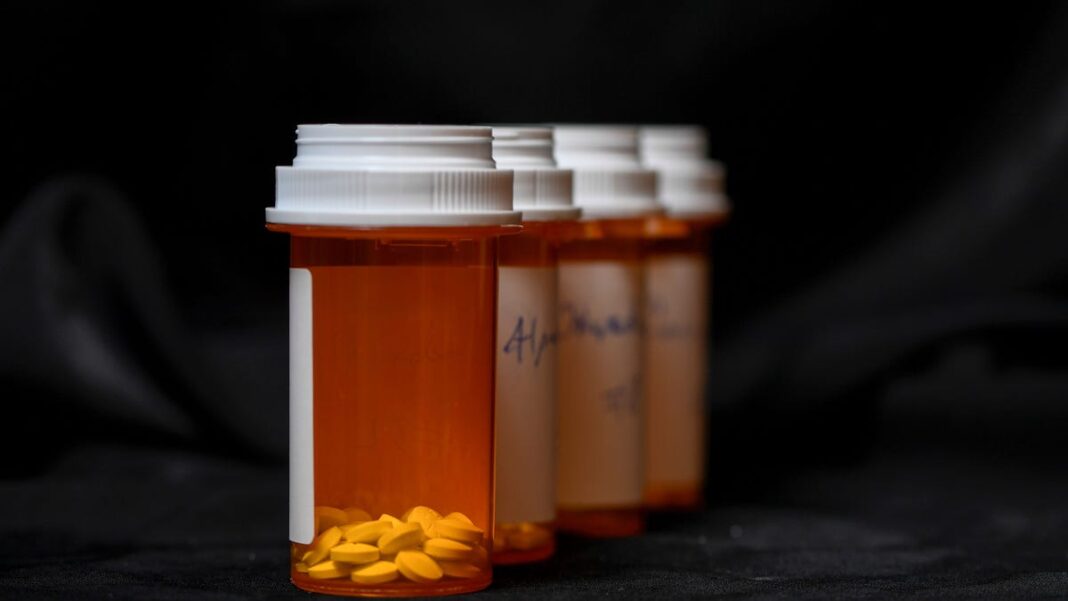Pharma Companies to Pay $266 Million to Baltimore Over Opioid Crisis
A Baltimore jury has ordered two major pharmaceutical companies to pay $266 million after determining that they played a significant role in the opioid crisis, which leads to thousands of addiction-related deaths across the U.S. every year.
The jury held McKesson, a healthcare product company based in Texas, responsible for $192 million in damages and Pennsylvania’s Cencora, a drug wholesaler, for $74 million.
Baltimore alleged that these companies neglected to report suspicious prescriptions of drugs like oxycodone and hydrocodone to federal regulators, which worsened the opioid crisis in the city. The city plans to request an additional $9 billion from the companies next month to fund solutions to combat this ongoing crisis.
Mayor Brandon Scott commended the jury’s decision, stating that it confirmed the negative impact of large pharmaceutical companies on the city.
“The opioid epidemic has affected every community in this country, but it has hit Baltimore particularly hard, causing immense suffering for families and neighborhoods,” Scott noted.
According to the CDC, 81,000 individuals in the U.S. died from opioid overdoses in 2023, a decline of about 3% from the previous year. In Baltimore, state statistics recorded an average of 866 opioid-related deaths annually from 2017 to 2021.
Lawsuit from 2018 Blamed Companies for Opioid Crisis
The law firm Susman Godfrey, representing the Baltimore city, stated that this jury verdict is the first successful legal ruling against both McKesson and Cencora in opioid litigation. This verdict comes nearly seven years after Baltimore initiated legal action against multiple drug manufacturers, wholesalers, and prescribers over their suspected involvement in the opioid crisis.
“Justice has been served,” remarked Bill Carmody, lead attorney for Baltimore and a partner at Susman Godfrey. “No other city in the U.S. has suffered as much from the opioid epidemic as Baltimore. This verdict is crucial for helping our city recover and ensuring a healthy future for all its residents.”
Rather than joining a national settlement with other pharmaceutical firms concerning opioid abuse, Baltimore decided to pursue independent legal action to seek greater financial compensation. The city has reportedly secured over $400 million from settlements with other companies, such as CVS, Walgreens, Johnson & Johnson, Cardinal Health, Allergan, and Teva.
The lawsuit accused McKesson, Cencora (previously AmerisourceBergen), and Cardinal Health of disregarding federal requirements to report suspicious opioid orders. This failure contributed to an overwhelming influx of opioids into Baltimore and other regions nationwide.
“The City aims to hold these defendants accountable for their involvement in the crisis and is demanding contributions toward the costly solutions needed to address the ongoing issue,” the 2018 lawsuit stated.
The complaint mentioned that McKesson had previously acknowledged its failure to report certain suspicious orders in a 2017 settlement with the Justice Department, which brought about a $150 million penalty and a suspension of sales for controlled substances from its distribution centers in Colorado, Ohio, Michigan, and Florida.
Additionally, the Justice Department filed a lawsuit against Cencora in December 2022, accusing it of not reporting numerous suspicious orders to the DEA, knowing these orders could contribute to the illicit distribution of prescription opioids. This case remains ongoing.
Following the jury’s decision, both McKesson and Cencora indicated their plans to contest the verdict.
Cencora spokesperson Mike Iorfino told YSL News that the verdict complicates the company’s legal and ethical responsibilities in ensuring access to essential medications while preventing the misuse of controlled substances.
“We are disappointed with the jury’s decision, which we believe does not accurately represent the circumstances of the case,” Iorfino stated. “Our teams are evaluating the ruling and will consider all options, including an appeal.”
Meanwhile, McKesson’s spokesperson informed YSL News that the firm intends to file motions challenging the verdict and to appeal if those motions are denied.
“We respect the jury’s decision but disagree with it, as it misunderstands McKesson’s limited role as a distributor of pharmaceuticals,” the spokesperson added.
Significant Financial Impact
The mayor highlighted that this recent court ruling has raised Baltimore’s total restitution funds to over $668.5 million, which is considered a “game-changing amount” in combating the opioid crisis. The funds will be allocated to various programs and services focused on preventing substance misuse, providing treatment, supporting recovery efforts, and reducing harm.
Despite comprising only 9% of Maryland’s population, Baltimore accounts for 44% of the state’s overdose fatalities, according to the Baltimore City Health Department. The department has reported an average of more than two overdose deaths every day in the city. Additionally, it noted that about 80% of opioid use disorder cases in Baltimore from 2010 to 2021 started with prescription opioids before transitioning to illegal drugs.
In 2023, approximately 125 million opioid prescriptions were issued throughout the U.S., reflecting considerable differences among states. The CDC has indicated that nearly 8.6 million Americans aged 12 years and older reported misuse of prescription opioids.

